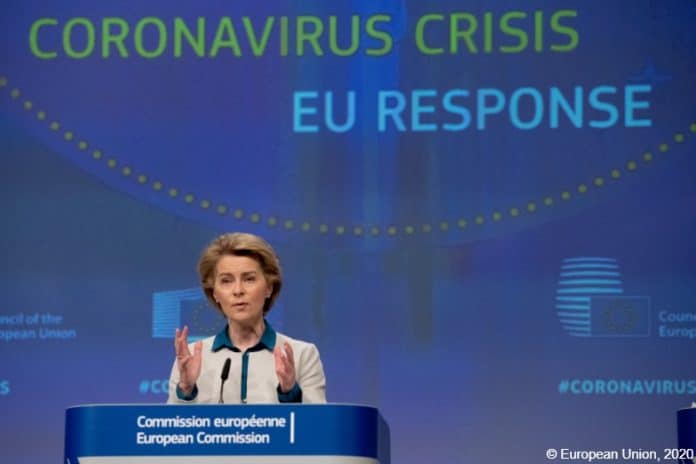The European Commission presented on Wednesday (April 15) its coronavirus exit strategy, providing concrete recommendations to EU Member States on the easing of confinement measures.
Extraordinary measures taken by the bloc to slow down the spread of the virus and save lives are working, the Commission said in a statement, but it warned the measures and corresponding uncertainty also have a drastic impact on the economy, society and people’s lives.
“Saving lives and protecting Europeans from the coronavirus is our number one priority. At the same time, it is time to look ahead and to focus on protecting livelihoods,” European Commission President Ursula von der Leyen said.
The Commission emphasised that actions to relax confinement should only be taken once the spread of the disease has significantly decreased and stabilised and if there is sufficient health system capacity, as well as appropriate monitoring capacity.
Actions taken should be gradual, the Commission said, calling for economic activity to be phased-in so as to find a balance between stimulating the economy and fighting the virus. The entire population should not return to the workplace at the same time, it added.
Internal border controls should be lifted in a coordinated mannerExternal borders should be reopened in a second stage and take account of the spread of the virus outside the EU.
Gatherings of people should be progressively permitted, and general measures should gradually be replaced by targeted ones in order to protect vulnerable groups as well as facilitate economic activity.
Actions should be continuously monitored, and Member States should be ready to return to stricter containment measures as necessary. The Commission will also develop a recovery plan, based on a new proposal for the upcoming long-term EU budget (Multiannual Financial Framework).
Additional links:

